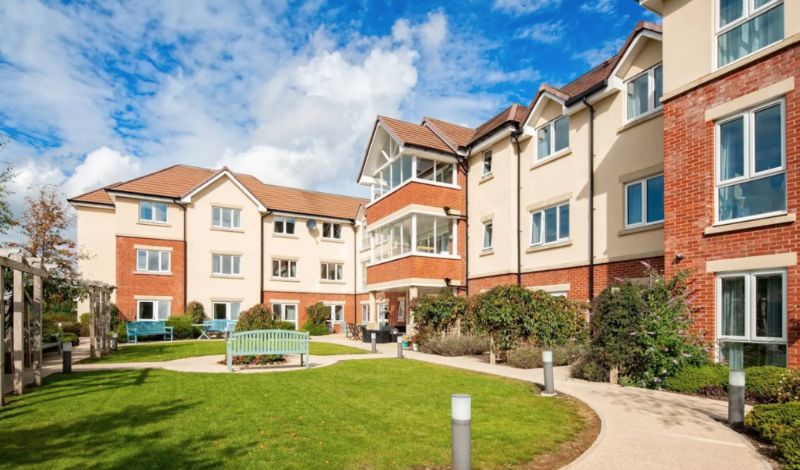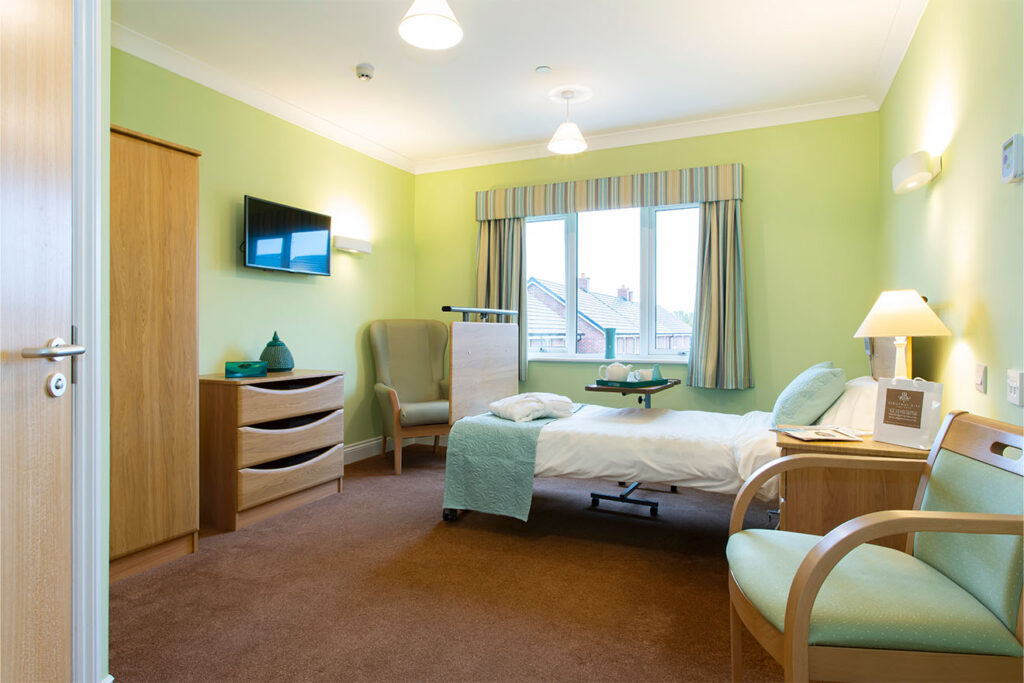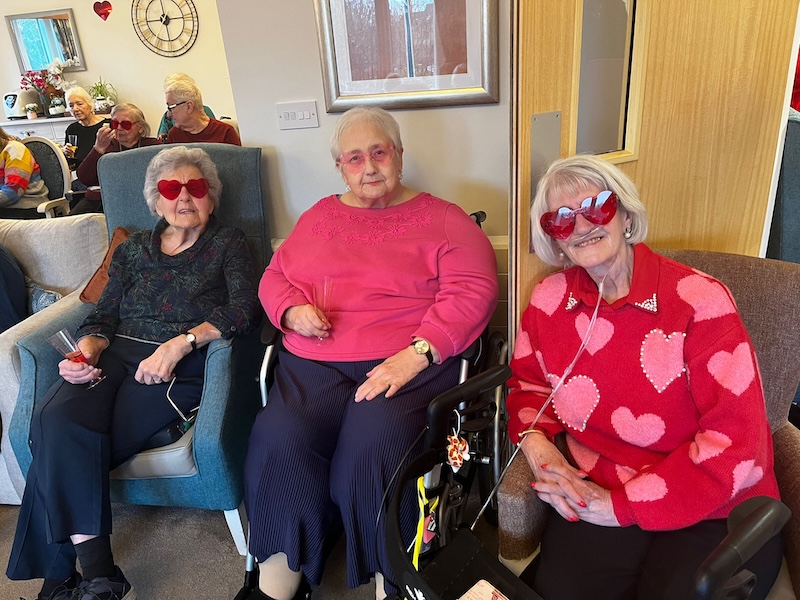When Should Someone With Dementia Go Into a Care Home?

For those living with dementia, as their condition progresses, it may be in their best interests to move into a care home that offers dedicated dementia care. Dementia is a neurological condition that affects the cognitive abilities of those living with it. This includes their memory, communication and decision-making. As a result of these effects, it can become difficult for an individual to live a safe, independent life.
To help someone with dementia with their daily life, family members might find it better to move that person into a nursing home. The decision can be an extremely difficult one and requires careful consideration for a number of reasons.
Below we list some aspects to think about and the many benefits to consider when deciding whether to move into a care home.

Living in a Safe Environment
Living with dementia can be very challenging for not only the person with dementia but also their family members. As the condition progresses, those living with the condition may find that their memory is severely affected. As a result, those living with dementia can become disoriented which in some instances can be very dangerous. Those living with dementia may find that they forget everyday tasks like turning off the hob, leaving the front door open or going for a walk and being unable to retrace their steps home. Moving into care won't strip you from your independence, it will allow you to live in a safe, thoughtfully considered environment where professionals provide around-the-clock support and can give you an improved quality of life.
Social Isolation from Others
Due to the condition affecting someone's cognitive abilities, dementia can feel very lonely. This can sometimes then lead to the person living with dementia to suffering from anxiety and depression which can affect their overall wellbeing and cause a decline in their health. Living in a dementia care home means that the home is designed to encourage enrichment for residents and they have the opportunity to socialise with other residents, receive emotional support and get involved in engaging activities.
Family and Friends Becoming Overwhelmed
Caring for someone with dementia can be a full-time job and can quickly become overwhelming due to complex challenges arising as the condition progresses. From the beginning of someone’s dementia diagnosis, those involved may find their new situation to be very distressing. When caring for a loved one and trying to manage your own life, it can be extremely tough and can cause exhaustion and stress. The thought of moving someone with dementia that you love into a residential care home is very hard but for a lot of families, it is the best option for them as the person living with dementia can receive around-the-clock care and support, whilst continuing to live independently.
Finances
There are care homes across the UK that offer dementia care and they all come with a different pricing structure. The fees depend on the level of care needed, the location and what is provided in the home.
There are several options to pay for care but a person living in a care home normally is self-funding their care services. Being a self-funder is all dependent on individual circumstances and finances. If you are unable to pay for care in a residential setting, you can approach your local council for support and the individual will undergo a financial assessment.
When you contact your local council for financial support they will conduct a means test on the individual looking at going into a care home. The local authority will conduct tests to assess the individual's property and financial affairs and conclude if you can get additional support or not. It is important to note that the local authority will only contribute towards the cost of someone's care if they are below that year's threshold.
If the person needing care has significant healthcare needs, they can apply for NHS Continuing Healthcare. This option requires another test from medical professionals or social workers to see if they are eligible for funding.

Finding the right care home
If you decide that it is the best option to move into a care home, it is important that you find a care home that meets the needs of the individual living with dementia. Some care or nursing homes might not offer dementia care or only offer it for those with low-level needs. The individual living with dementia should also be involved in the decision-making process as much as possible.
Communication
A person's dementia may affect their ability to communicate and as a result, they may find it extremely difficult to understand information and find changes challenging. During the early stages of their dementia diagnosis, it is important to have clear communication regarding the idea of moving into a care home. At this early stage, it is also very important to organise a lasting power of attorney. This gives a family member the legal power to make financial decisions and organise care that the person with dementia needs when they are no longer able to make their own decisions.
Choice
It is important to involve the person living with dementia in the decision process throughout, even if they can no longer communicate like they once did. Having them involved allows the process to be as seamless as possible for both the individual and their loved ones. When looking at dedicated dementia care homes, it is important that the home fits the criteria needed and it is a good idea to take that person to visit these homes to see how they feel and react to the environment.
Familiar Environment
Moving from your own home into a residential care home can be a very daunting experience for everyone involved, but when someone with dementia moves they can become very disoriented with the whole process. To help them adjust, it is a good idea to move into a care home that is situated in an area that they know. Most homes will allow residents to bring their own things to personalise their own room such as photos, soft furnishings and furniture. This helps the individual to feel more comfortable, at home, and familiar with their surroundings.
Continuity of care
It is important that a person with dementia receives continuity of care with their care home team. Before the loved one moves into care, try and provide the home with as much information about that individual as possible, from their medical history, the medication that they take and even their current daily routine.
Another factor to consider is what type of care that person needs. You might find they need further care and the care home you have chosen might not be able to provide that support to them. There are several types of care that you should look into.
Residential Care Homes
Residential care homes provide accommodation, communal living, meals and personal care to older people that can largely live independently but may need some assistance from time to time. Staffed with carers, teams are available around-the-clock to offer assistance and support. Some residential care homes may also provide dementia care for those with low-level dementia. It is important to choose the right one as each care type will be provided with different levels of support.
Specialist Dementia Care Homes
Dementia care homes are purpose-built to cater to individuals living with dementia and offer specialised care and provide support for those with the condition. The team members within the dementia care unit will be trained to provide specialised care and a safe environment reducing the individual feeling anxious. This type of care home provides additional services and activities that are tailored for dementia residents. For example, they might have reminiscence rooms or sensory rooms.
Care Home That Covers All Care Types
Many care homes and nursing homes across the UK offer multiple types of care. The four main care types are Residential Care, Dementia Care, Nursing Care and Respite Care. Living in a home that can provide a continuum of care throughout your stay can make the process as easy as possible for everyone involved and the person in care can have support from medical professionals if someone's health suddenly declines.
When dealing with dementia, it is important to remind yourself that you are not alone and that many families across the world face the same challenges as you. It is a massive change to move someone with dementia and it can be a difficult one too. The best thing to do is to do as much research on the homes you have selected and see what services, facilities and activities they have to offer.
Researching Care Homes
When researching care homes, you can look at their Care Quality Commission report which gives an overall grade and rating for that home. There are also organisations like the Alzheimer's Society and Age UK that can help with additional information, advice and emotional support for families and those living with dementia. The guidance provided by these charities can help you with your overall decision and what to look out for when visiting a home.

Exceptional Care From Ridgeway Rise Care Home
Ridgeway Rise is a care home based in Swindon that has been purpose-built and strives to provide the dedicated care that our residents deserve.
We understand that everyone is different and we do our best to make every day as engaging and enjoyable as possible for all of our residents. Alongside our variety of activities and therapies, we offer first-class facilities and the highest quality of Dementia Care, ResidentialC Care, Nursing Care and Respite Care.
Our dementia care is tailored to each individual resident to make sure that they are getting the support they need. From personal care to social contact, our team of professionals are fully trained to accommodate all aspects of dementia and we collaborate with our resident's loved ones to ensure that we are providing holistic support to everyone involved.
Providing care and support to our residents with dementia is very important to us here at Ridgeway Rise Care Home, and we go above and beyond to provide residents with inclusive opportunities and experiences. We are active participants in World Alzheimer’s Day and Dementia Action Week and regularly get our residents involved in dementia awareness events within our local community. We are proud to be ambassadors for those living with dementia.



Get In Touch With Us Today!
If you have any questions in regards to our care home in Swindon or would like to book a visit then please contact our team by emailing us at info@ridgewayrise.com, calling 01793987730 or filling out our contact form.





